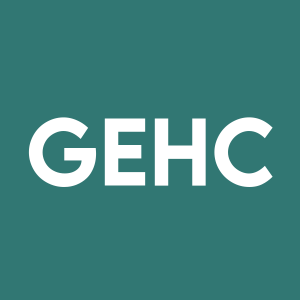GE HealthCare and Medis Medical Imaging Announce Collaboration Focused on Non-Invasive Coronary Assessments to Help Advance Precision Care in Treatment of Coronary Artery Disease
- Collaboration seeks to advance precision care by providing an alternative, non-invasive approach to the assessment of coronary physiology.
- Both companies will focus on the integration of Medis QFR into GE HealthCare’s cath lab environment built around the Allia Platform to enable a seamless user experience.
Within the complex umbrella of cardiovascular disease, CAD is a type of heart disease that develops when the coronary arteries narrow and the heart cannot deliver enough oxygen-rich blood to the heart. The impact of this narrowing can ultimately result in angina (chest pain), which has been shown to double the risk of major cardiovascular events,1 as well as myocardial infarction (heart attack) or even death. In order to accurately diagnose suspected CAD, a significant percentage of patients can undergo invasive coronary angiography to help clinicians determine the severity of their disease. Traditionally, a clinician will then visually interpret an angiogram to determine whether a patient requires treatment, such as a percutaneous coronary intervention (PCI), as well as determine where, or which lesion, to treat to restore blood flow.
As part of GE HealthCare’s commitment to advancing precision care in interventional cardiology, the company’s collaboration with Medis Medical Imaging will bring Medis QFR to clinicians as an emerging, non-invasive, image-based diagnostic approach to the assessment of coronary artery physiology and the treatment of CAD. The benefits of QFR guidance are supported in a recent study that showed that a QFR-guided strategy of lesion selection for PCI improved two-year clinical outcomes, including reduction in myocardial infraction and ischemia-driven revascularization, when compared with standard angiography guidance alone.2
“We continue to see an evolution in how clinicians work to treat cardiovascular disease and want to give clinicians the tools, along with the flexibility and adaptability, they need to enable better outcomes for their patients,” says Arnaud Marie – General Manager for Global Intervention at GE HealthCare. “In the assessment of coronary artery disease, QFR represents a significant advancement in how efficiently it can provide critical insights. We’re excited to collaborate with Medis Medical Imaging to add innovative, non-invasive, image-based QFR to our portfolio of offerings around our Allia IGS platform to streamline the experience for clinicians and help us to deliver on our vision for the future image-guided therapy.”
Medis Medical Imaging has been developing innovative post-processing software for the quantification of cardiovascular images for thirty-five years. Medis’ QFR is a proprietary solution that delivers image-based physiology of coronary obstructions based on angiography imaging analysis alone. Interventional cardiologists can seamlessly adopt the solution into their clinical workflow to help them effectively and efficiently determine if a PCI is required to treat the patient or if treatment should be deferred for ongoing monitoring or other alternative treatment options. If treatment is needed, Medis’ QFR technology can help clinicians select the ultimate lesion(s) for treatment and create the right treatment plan for a balloon or stent-based PCI procedure, while also helping the clinician evaluate the efficacy of that treatment. This analysis can be performed in real time while the patient is on the table and results are displayed on the large display monitor in the cath lab.
“We are absolutely delighted to be taking this next step with GE HealthCare, a fellow leader in the interventional cardiology domain,” shares Maya Barley, CEO Medis Medical Imaging. “Building on Medis QFR’s decade of AI research, customer-focused product development, clinical evidence generation and business development, we are excited to be able to further accelerate our efforts around Medis QFR to enable more hospitals and clinicians to apply physiology in day-to-day interventional practice a part of best-practice clinical care – making this technology more accessible and available to patients than ever before.”
Innovative technologies like Medis QFR enhance GE HealthCare’s comprehensive portfolio of interventional cardiology solutions built around the Allia Platform designed to optimize workflows, unlock efficiencies, and drive better patient outcomes in the treatment of cardiovascular disease.
To learn more about GE HealthCare’s latest innovations in interventional cardiology including Allia IGS Pulse, the next generation of image-guided systems for cardiac imaging, or Medis QFR, please visit the EuroPCR 2024 congress booth #F15 in
About GE HealthCare Technologies Inc.
GE HealthCare is a leading global medical technology, pharmaceutical diagnostics, and digital solutions innovator, dedicated to providing integrated solutions, services, and data analytics to make hospitals more efficient, clinicians more effective, therapies more precise, and patients healthier and happier. Serving patients and providers for more than 125 years, GE HealthCare is advancing personalized, connected, and compassionate care, while simplifying the patient’s journey across the care pathway. Together our Imaging, Ultrasound, Patient Care Solutions, and Pharmaceutical Diagnostics businesses help improve patient care from diagnosis, to therapy, to monitoring. We are a
Follow us on LinkedIn, X (formerly Twitter), and Insights for the latest news, or visit our website https://www.gehealthcare.com/ for more information.
About Medis Medical Imaging
For over 35 years, Medis has been providing high-quality quantitative analysis solutions for cardiovascular imaging to the medical community. Our heritage and core values are based on this strong purpose of contributing to a healthier society by providing the right tools to clinicians worldwide. Medis’ software is internationally appreciated due to its ease of use and its clinical outcome for the patients. At Medis, quality is key, all our products are developed and validated extensively to guarantee the highest quality, without compromise. We continuously focus on the creation of clinically relevant innovative software solutions in the cardiovascular imaging domain.
1 World Health Federation. Use Heart to Act on Angina. Available at: https://world-heart-federation.org/use-heart-to-act-now-on-angina/. Accessed May 2024.
2 Lei Song, Bo Xu, Shengxian Tu, Changdong Guan, Zening Jin, Bo Yu, Guosheng Fu, Yujie Zhou, Jian’an Wang, Yundai Chen, Jun Pu, Lianglong Chen, Xinkai Qu, Junqing Yang, Xuebo Liu, Lijun Guo, Chengxing Shen, Yaojun Zhang, Qi Zhang, Hongwei Pan, Rui Zhang, Jian Liu, Yanyan Zhao, Yang Wang, Kefei Dou, Ajay J. Kirtane, Yongjian Wu, William Wijns, Weixian Yang, Martin B. Leon, Shubin Qiao, Gregg W. Stone, 2-Year Outcomes of Angiographic Quantitative Flow Ratio-Guided Coronary Interventions, Journal of the American College of Cardiology, Volume 80, Issue 22, 2022, Pages 2089-2101, ISSN 0735-1097, https://doi.org/10.1016/j.jacc.2022.09.007.
View source version on businesswire.com: https://www.businesswire.com/news/home/20240514519396/en/
GE HealthCare
Karin Dalsin
Global Communications Director
karin.dalsin@gehealthcare.com
+1-612-219-2855
Medis Medical Imaging
Arnoud van Dorth
Head of Marketing
avandorth@medisimaging.com
+31 655697535
Source: GE HealthCare









